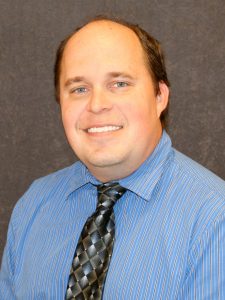
Peter Collins, associate professor in the Department of Materials Science and Engineering, was selected to be a collaborator in a Multidisciplinary University Research Initiative (MURI) program for the United States Navy. The team of collaborators will focus on properties, defects, and instabilities in advanced manufactured alloys, an area of great importance to the Navy.
The team hopes to better explore a number of physical processes that can affect the final product, including rapid heating and cooling of materials, and examine how physical properties at the submicron level might differ from those at a far greater scale.
Collins will be collaborating with researchers across the multi-university team to study the fundamental details of solid-state phase transformations in additive manufacturing. Specifically, Collins will study the crystallographic details, chemistries, and evolution of defects at the nanometer length scales.
“We bring our understanding and experience of additive manufacturing of titanium and nickel-based alloys to study the fundamental science of phase transformations,” said Collins.
The influence of this fundamental research will be crosscutting and crucial to all metal advanced manufacturing processes that use high energy deposition processes involving arc, plasma, laser, and electron beams, and powder bed fusion processes with laser and electron beams, all of which involve solidification and solid-state transformations under highly transient conditions.
These processes are all relevant to US Department of Defense and manufacturing industries.
The MURI program is led by Suresh Babu, the University of Tennessee-Oak Ridge National Laboratory Governor’s Chair for Advanced Manufacturing. The team consists of researchers from University of Tennessee, Virginia Tech, Ohio State University, the University of California- Santa Barbara, the Colorado School of Mines, and University of New South Wales. The program is set up to encourage collaboration between universities in the US and Australia, strengthening educational and governmental alliances. The US universities will be sponsored by the Office of Naval Research and the Australian Team will be sponsored by the Australian Defence Science and Technology Organisation.
According to the Office of Naval Research, the award will total roughly $1.5 million a year for three years and be extendable to five years.
The Army Research Office, Air Force Office of Scientific Research, and Office of Naval Research received 436 initial proposals. Along with the Department of Defense, they narrowed those proposals down to 24—one for each of the two dozen topic areas—awarding $169 million in total across all MURI awards for the duration of each project.
Information for this story was sourced from the original news release and formatted for the Iowa State Department of Materials Science and Engineering. To view the original news release from the University of Tennessee, click here.